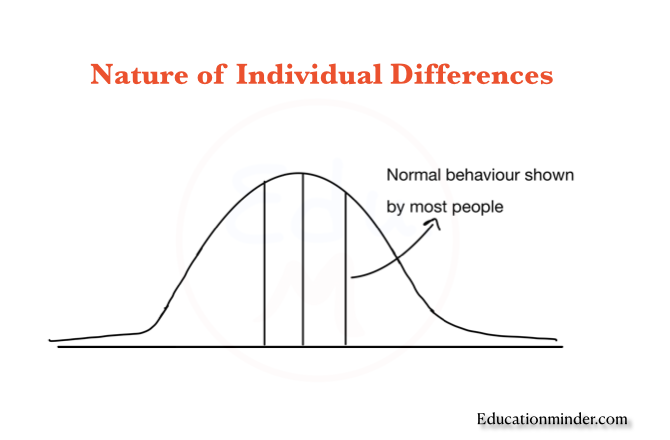Have you ever wondered why people are different from each other in so many areas? Some have good physiques while some have not. Some are intelligent while some are average. Some are introvert while some are extrovert. These differences are called individual differences in psychology. There are many factors responsible for this.
Meaning of individual differences
Individual differences are the variations that differentiate one person from another. Individuals can differ in size, shape, appearance, intelligence, attitudes, reasoning, achievement, creativity, habits, aspirations, and various other psychological and personality traits. They can be seen in how people think, feel, and behave differently from one another. Following are some definitions of individual differences:
According to Charles Darwin, “No two individuals of the same race are quite alike, we compare millions of faces and each will be distinct.”
According to Skinner, “ today we think of individual differences as including any measurable aspect of the total personality.”
According to Tyler, “Measurable differences have been shown to exist in physical size and shape, psychological functions, motor capacities, intelligence, achievement and knowledge, interests, attitudes and personality traits.’’
According to C.V good, “ The variations among individual is with regard to a single characteristic or a number of characteristics, these differences which in their totality distinguish one individual from another.”
Nature or Characteristics of Individual Differences
1. Individual differences are influenced by many factors such as heredity, environmental, social, cultural, etc. All these factors are responsible for physical traits, cognitive traits, social and personality traits in children.
2. Individual differences are complex and can not be fully explained by only one characteristic. In other words, they are multidimensional. For example, intelligence is not the only factor that determines the academic excellence of students. Other factors such as motivation, personality characteristics and access to useful resources also play a significant role.
3. Individual differences help in understanding human behavior. For example, people hold different values, customs, traditions, rituals, and norms. These differences can help us understand why people have different opinions and how they react to different situations. Thus, individual differences allow us to identify the relationship between various traits and behaviors.
4. The basis of individual differences is heredity. This genetic makeup is responsible for various traits such as height, weight, complexation, intelligence, memory, imagination, reasoning, aptitude, creativity, attitude and is also responsible for various diseases.
5. They can be measured with various tools and techniques such as psychological tests, achievement tests, and observation
• Psychological tests can be used to measure individual differences in emotional and cognitive intelligence.
• Achievement tests help us to know individual differences in the educational achievement of different individuals.
• Observation is used for undertaking how different individuals interact differently with their environment.
6. Differences can also be found within the same individual. These are called intra-individual differences. Examples of intra-individual differences include changes in mood, changes in personality, etc.
7. A large number of individuals exhibit normal behaviour on the distribution curve. It means most people fall in the middle of distribution while a small number of people fall at the extreme ends.
Thus, Individual difference is a universal phenomenon that exists everywhere, and knowing and valuing them can help us build a society that is more inclusive and equitable.














0 Comments